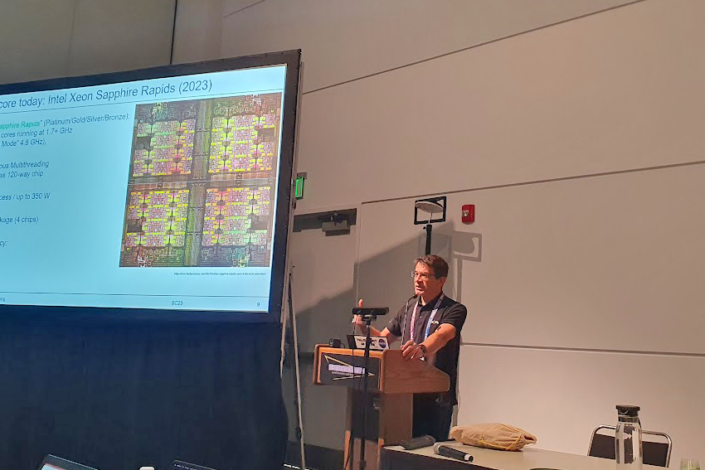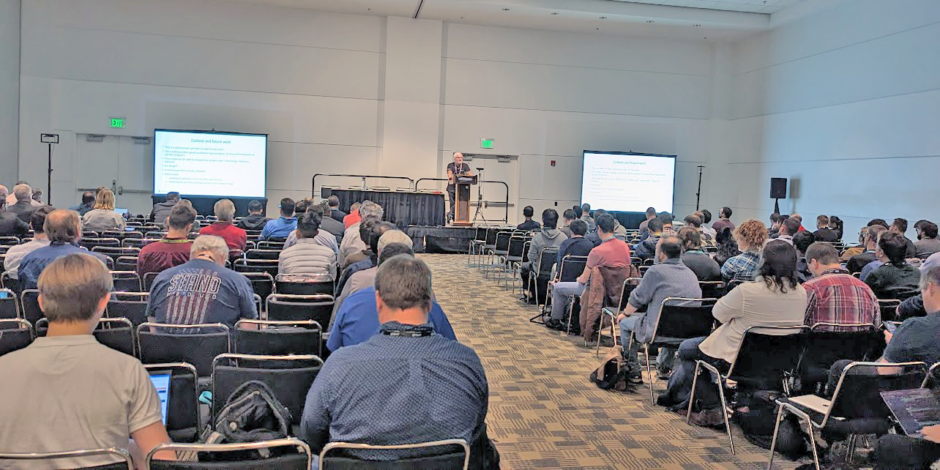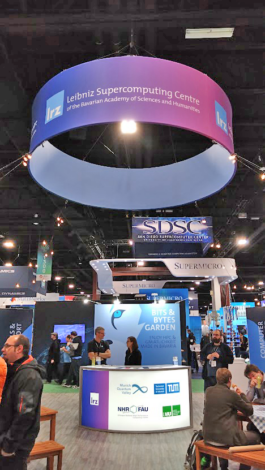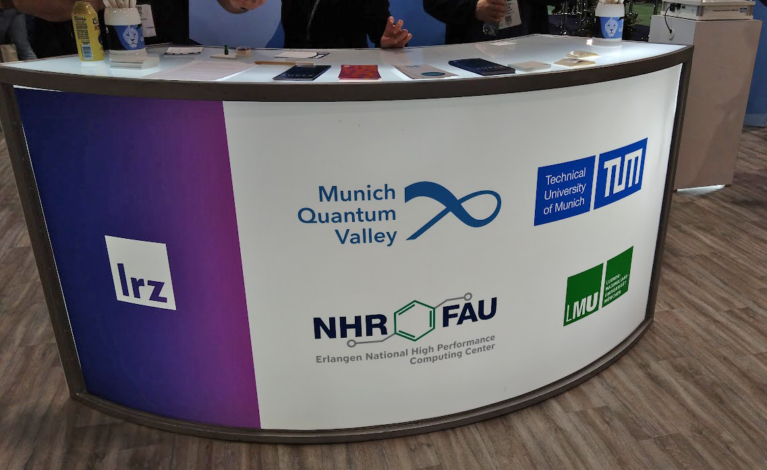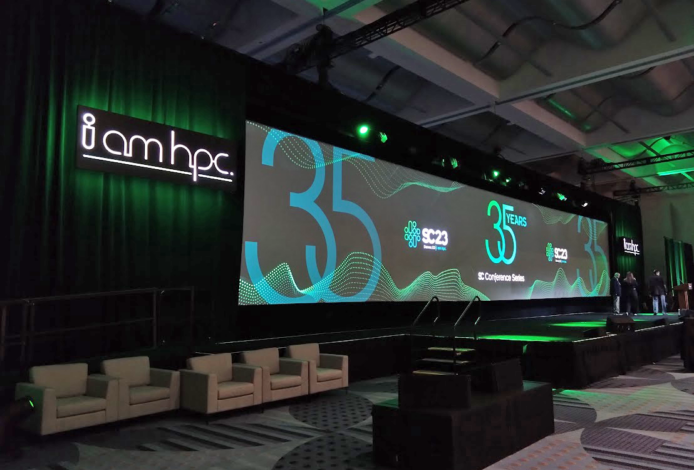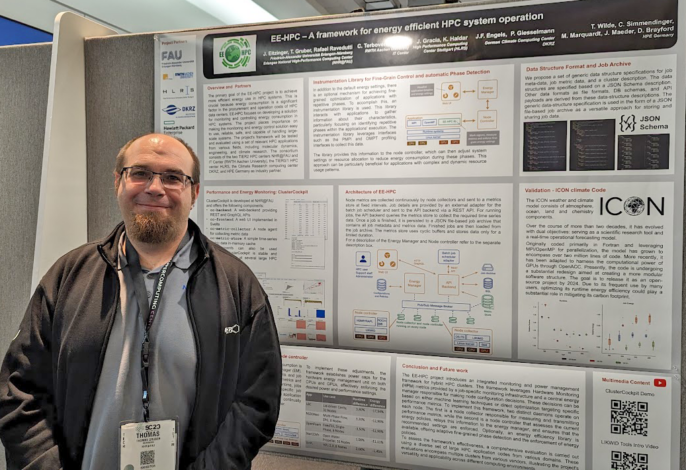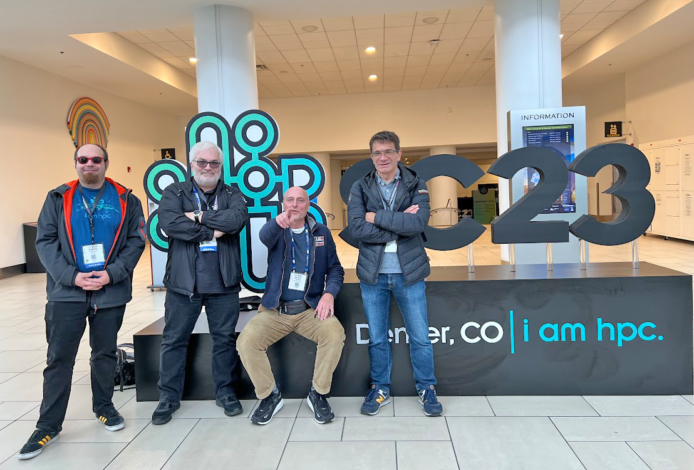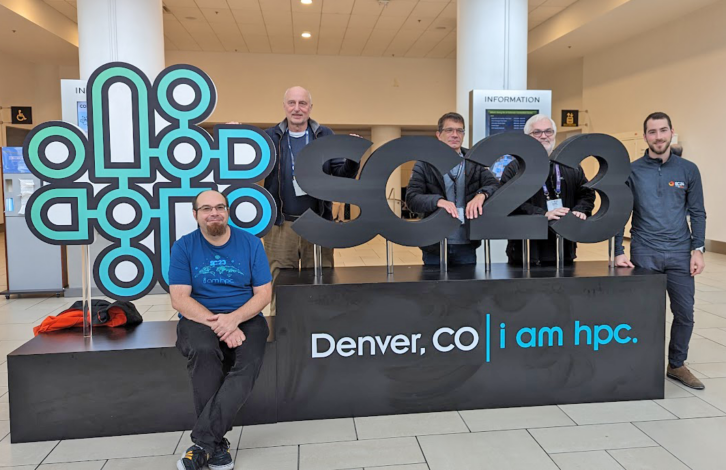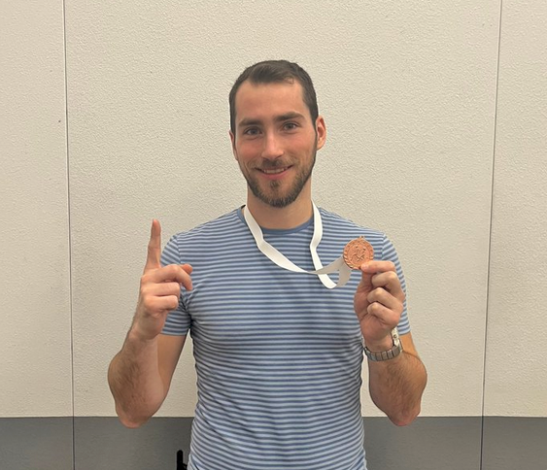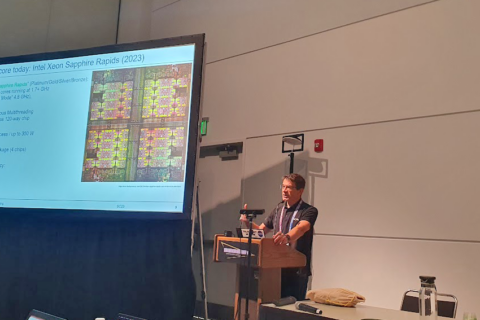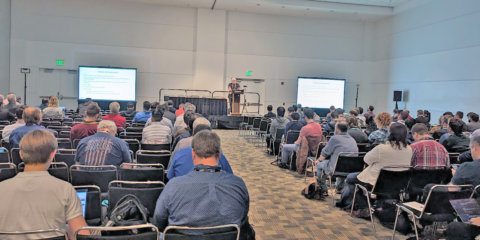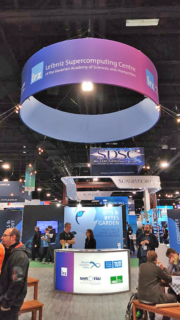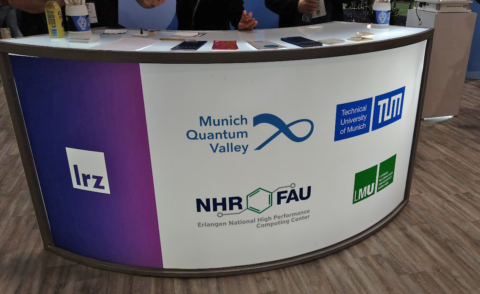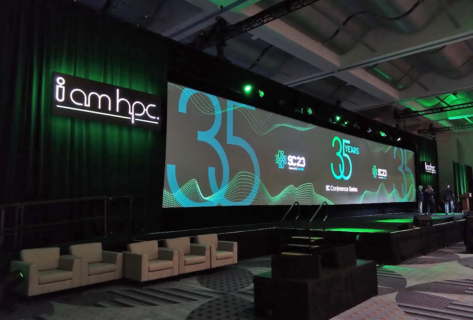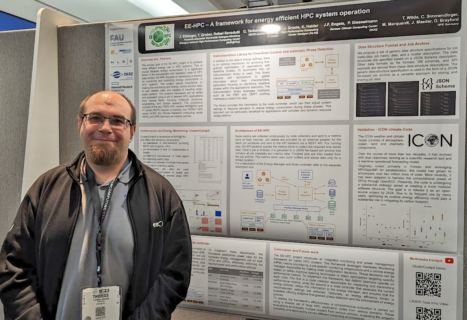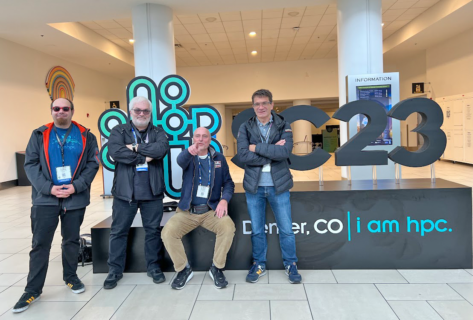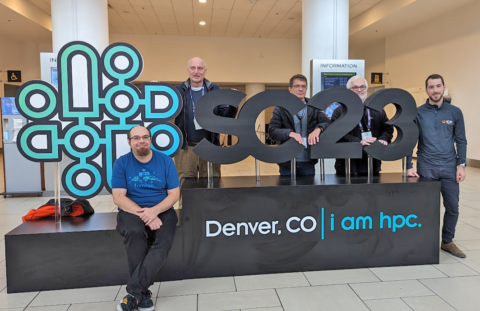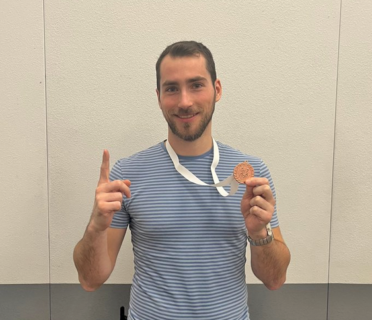“I am HPC” – NHR@FAU at Supercomputing Conference 2023
This year’s Supercomputing Conference (SC23) took place in Denver, Colorado from November 12 to 17. As the largest and most important international event for HPC, it offered once again an extensive and diverse technical and scientific program as well as numerous exchange opportunities about innovations and best practices. Under the slogan “I am HPC,” central topics such as algorithms, applications, cloud computing, data analysis, visualization and storage, architectures and networks, machine learning and HPC, programming, and software systems were represented.
Together with colleagues from LMU Munich, TU Munich, and Munich Quantum Valley, NHR@FAU was again part of the activities at the LRZ booth, where “Bits and Bytes Garden – Enjoy HPC & Gmiatlichkeit made in Bavaria” attracted guests to chat and enjoy Bavarian (and Franconian) ambience. NHR@FAU presented its performance tools and – as part of the scientific conference program – participated with its popular full-day tutorial “Node-Level Performance Engineering.” Furthermore, a research poster on “EE-HPC – A Framework for Energy Efficient HPC System Operation” was presented by Thomas Gruber, who is widely known as the lead developer of the LIKWID multicore tool suite. The poster showcased open-source solutions for monitoring and system settings for energy-optimized computing centers, which are at the focus of the BMBF-funded EE-HPC project. Finally, two research papers were presented at the 14th Workshop on Performance Modeling, Benchmarking, and Simulation of High Performance Computer Systems (PMBS), which was part of the SC23 program: We are happy to announce that the paper “Physical Oscillator Model for Supercomputing” by our doctoral student Ayesha Afzal has been awarded the “PMBS23 Best Short Paper Award.” In addition, her research article “SPEChpc 2021 Benchmarks on Ice Lake and Sapphire Rapids Infiniband Clusters: A Performance and Energy Case Study” was also accepted for publication (both papers were presented by Georg Hager). Ayesha’s research revolves around performance modeling, visualization, and simulation of highly parallel programs. She is also active in the HPC community, with numerous involvements in program committees, workshop organization, and journal paper reviews.
Beyond being HPC brainiacs, NHR@FAU staff also aims to keep in shape, and with success! Our PhD student Jan Laukemann won the SCinet 5K run, which took place on Sunday after setup week. Jan focuses on application optimization and performance engineering for HPC systems and novel algorithms for scalable linear algebra, tensor decomposition, and graph computations. He has been an SC conference attendee for several years: as a paper author, as as student volunteer, and as an advisor for the Student Cluster Competition team from FAU. This year, he was accepted again into the SCinet program, where he helped set up and maintain the complex network infrastructure of the SC23 conference. At a whopping aggregate 6.71 Terabits per second, SCinet built the world’s fastest temporary internet service, just for the purpose of providing the SC23 conference with top-notch connectivity.
As always, the SC23 was an impressive event and gave the opportunity to make new contacts, exchange ideas, and collect lots of great new impressions.


